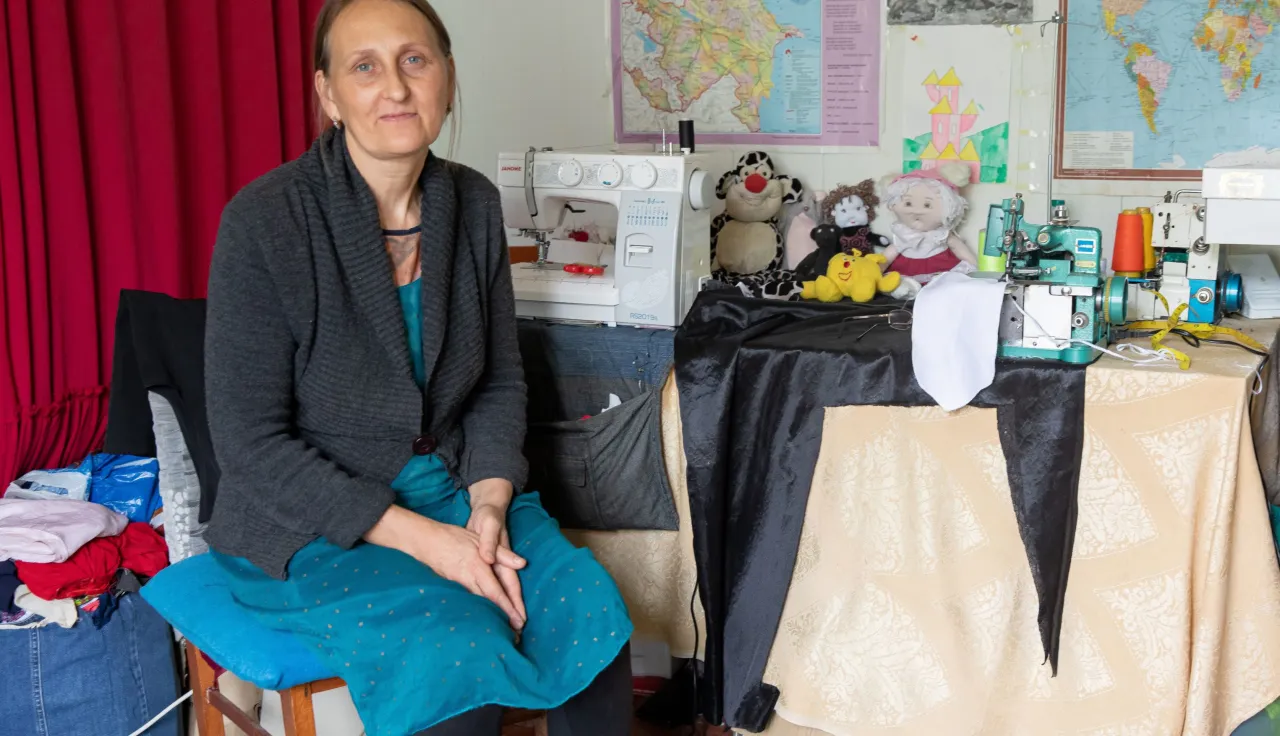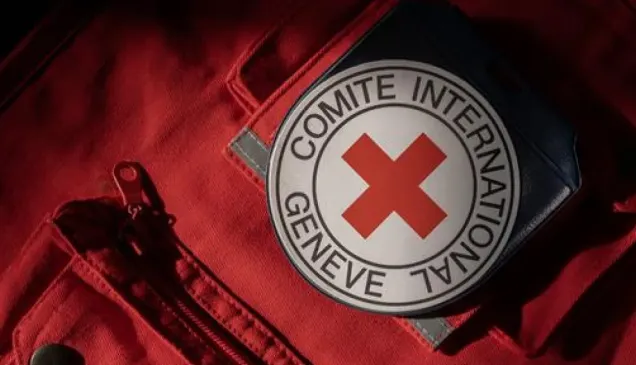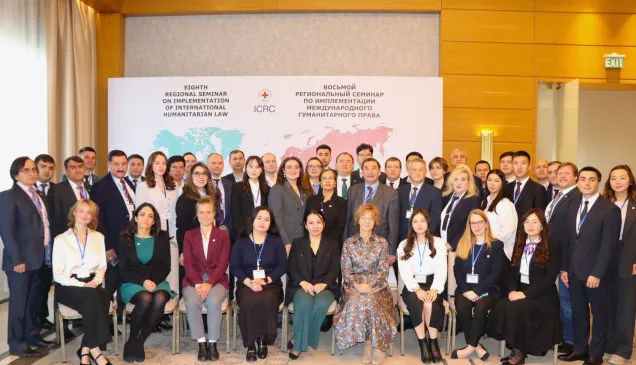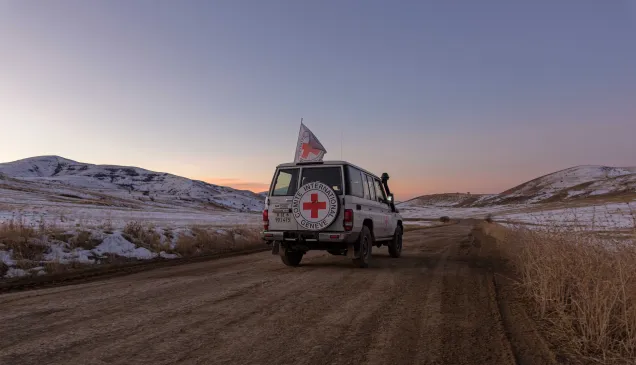Azerbaijan: Microeconomic initiative supports small businesses and long-standing dreams

A sewing machine, an electric iron, an ironing board, a table to cut fabric, a pair of scissors, some needles and threads – these are a few of Svetlana’s favourite things. What may look like common sewing tools and supplies to others are her prized possessions as they have been helping to boost her tailoring business and even buying her the gift of leisure time to enjoy gardening, an activity she could hardly ever indulge in previously.
Svetlana, who lives in Borsunlu village in Tartar region of Azerbaijan, bought the sewing tools in November 2022 with the help of a cash assistance that she received as part of a microeconomic initiative project of the International Committee of the Red Cross (ICRC). The project provides business skills training and cash assistance to eligible candidates from economically vulnerable families affected by the conflict, helping them to revive or start small-scale businesses and earn a stable livelihood amid their challenging circumstances.
 © Aida Aliyeva/ICRC
© Aida Aliyeva/ICRC
In 2022, the project made a significant impact on people from 11 villages across four districts of Azerbaijan – Aghdam, Tartar, Goranboy and Tovuz – that are affected by the conflict. While as many as 303 application forms were submitted from the participating villages, 51 people were selected following a meticulous screening process. "The selected candidates, comprising men and women of diverse age groups and backgrounds, were required to attend a two-day business skills training programme that we organized. The sessions focused on how to set up and manage a business effectively," says Ahad Mammadov, who works for the ICRC's Economic Security unit in Azerbaijan. He adds that ICRC staff members also monitored and guided the candidates through the various phases of the project, ensuring that they have the required support for their entrepreneurial journey.
 © Aida Aliyeva/ICRC
© Aida Aliyeva/ICRC
Svetlana, who was among the 51 people selected, shares that she has been tailoring for close to three decades. "I had an old sewing machine that served me for 27 years. But it had limited functions and had to be operated manually, so I used to often struggle with it and my arms used to hurt. Joining the ICRC's project brought a remarkable transformation to my business. My efficiency and productivity got a major boost because of the professional-grade equipment that I was able to buy with the cash assistance. My new machines have many functions that help to save tremendous time and allow me to enjoy other things like gardening," she says, adding that she cherishes the newfound work-life balance.
 © Ingy Sedki/ICRC
© Ingy Sedki/ICRC
With word getting around about the quality of her work, Svetlana has seen a surge in the number of orders. Her clients now include people from neighbouring villages and even different districts. Excited about the growing demand, Svetlana has recently diversified beyond clothes to stitching aprons and pot holders too. Passionate about her profession and eager to pass on her skills to help others, she has also taken on a student to train under her. "I get joy from nurturing young talent and empowering people to pursue their dreams," she says.
 © Aida Aliyeva/ICRC
© Aida Aliyeva/ICRC
Svetlana is also bursting with ideas for the future. "I want to buy a wide range of fabrics so that I can cater to the diverse preferences of my clients. I also want to set up a small workshop where like-minded artisans can partner, fostering a community that thrives on creativity and craftsmanship," she shares.
 © Aida Aliyeva/ICRC
© Aida Aliyeva/ICRC
Svetlana's journey, being propelled from years of struggling with outdated equipment to becoming a successful and respected tailor, is an inspiring testament to the transformative power of providing the right support and opportunity.



